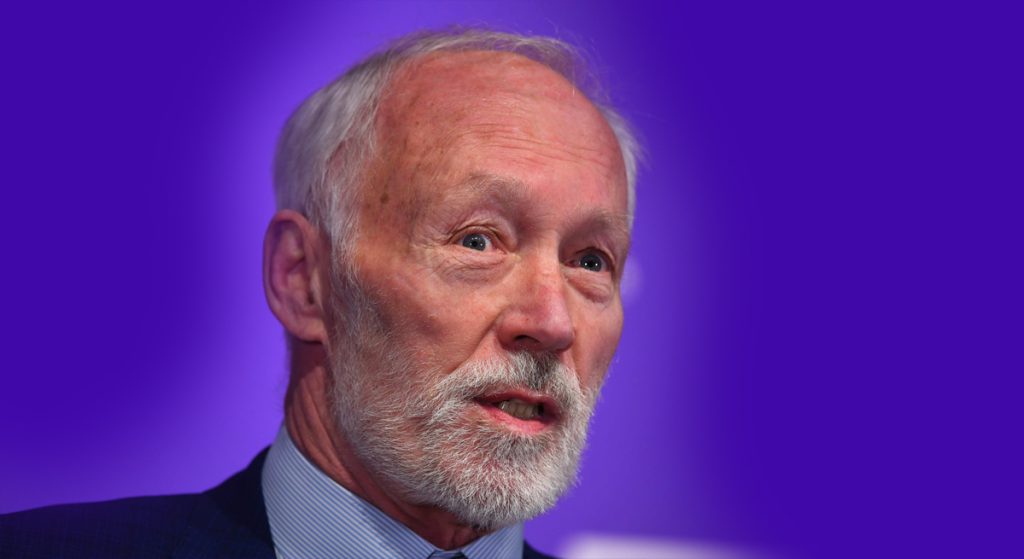No Headspace Evidence
Is there a pandemic of mental illness among young people? Is almost one in two young women affected by mental illness?
In an opinion article in The Australian, Patrick McGorry, a celebrated psychiatrist, 2010 Australian of the Year and recipient of an Order of Australia Award for his services to youth mental health, claimed this was so.
McGorry quoted a paper in The Lancet Psychiatry, of which he is lead author, to argue that mental ill health in young people (defined as 12 to 25) is a silent public health crisis threatening the lives and futures of a whole generation.
He says youth mental health has been steadily declining over the past two decades, and suffered a major deterioration driven by the COVID-19 pandemic, the measures taken to contain it, and its aftermath. In addition, he says intergenerational wealth inequality, student debt, insecure work, unaffordable housing, climate change, and social media have contributed.
The prevalence of mental illness is highest among 18-24 year olds and decreases with age
It has now “entered a dangerous phase”, he says, with a 50 per cent increase in “diagnosable mental health conditions among 16–25 year-olds since 2007” He believes governments have a responsibility to “wind back harmful policy settings and regulate powerful private forces.”
This will take time, he admits, and suggests a more immediate solution is to “reimagine and strengthen” the youth mental health program he pioneered known as headspace, “buttressed by a new specialised, multidisciplinary platform of community health care”.
This is obviously a campaign for additional public funding of his pet project, a classic case of special pleading. There are hundreds like it, ranging from childhood cancer to aged care. Libertarians tend to dismiss special pleading out of hand, on the basis that it is simply a call for increased government intervention using taxpayers’ money.
But most people are not libertarian, and there are legitimate questions: is the situation as McGorry describes? If so, is it any business of the government, and are his solutions appropriate?
There is something inherently dubious about a claim that almost half of all young women are suffering from mental ill health. It is certainly not my experience. While it is true that the Covid measures were both painful and unnecessary, is the current generation more mentally fragile than the generations that experienced world wars or the threat of nuclear war? And why should fear of climate change be causing more mental ill health than Ehrlich’s predictions of an overpopulation catastrophe?
As for the other factors nominated by McGorry, when has it ever been different? Indeed, the only new element in his list is social media. While it is true that being abused and insulted by strangers online is new, it seems a stretch to suggest it is causing a lot more mental ill health.

What’s needed is evidence relevant to McGorry’s claims: an objective definition of “diagnosable mental health condition”, plus data on the number of cases.
His article in The Australian and the Lancet paper had neither. Furthermore, despite the paper being a review of multiple sources, it did not cite any data that substantiated the claims.
One source it listed is an Australian study, the National Study of Mental Health and Wellbeing, undertaken by the Australian Bureau of Statistics in 2020-2022. It reported that 42.9% of people aged 16–85 years had experienced a mental disorder at some time in their life. However, it is entirely based on what respondents told interviewers face to face.
Moreover, its definition of mental disorder includes not only illnesses such as depression, psychosis and eating disorders, but also anxiety and substance abuse. In other words, if respondents indicated they felt anxious, or had overdone the substances, it was likely to be classified as mental illness.
Youth mental health has been steadily declining over the past two decades, and suffered a major deterioration driven by the COVID-19 pandemic
Current understanding of mental illness is roughly where our understanding of infectious diseases was a century and a half ago – the causes are not known, and there are no cures. In many cases it cannot even be objectively defined. Almost everyone experiences anxiety in their life, but obviously not everyone characterises it as mental illness.
Current therapy involves talking about it (technically known as psychotherapy) and medication. These can be helpful, just as measures to reduce a fever helped with infections prior to the invention of antibiotics, but most cases recover irrespective. This is shown by the fact that the prevalence of mental illness is highest among 18-24 year olds and decreases with age.
Indeed, perhaps the best treatment for most so-called mental illness among young people is time. Like pimples and adolescence, they grow out of it. Puberty blues is not merely the name of a movie.
What is abundantly clear is that the picture painted by McGorry cannot be substantiated. His long-term solutions are progressive claptrap, while he offers no evidence to show that his headspace project is making a difference and deserves additional government funding. Indeed, if there was such evidence it would probably attract philanthropic support.
If there is a sound argument for the government involving itself in youth mental health, McGorry does not offer one. It is not just libertarians who should be sceptical.
Got something to say?
Liberty Itch is Australia’s leading libertarian media outlet. Its stable of writers has promoted the cause of liberty and freedom across the economic and social spectrum through the publication of more than 300 quality articles.
Do you have something you’d like to say? If so, please send your contribution to editor@libertyitch.com







